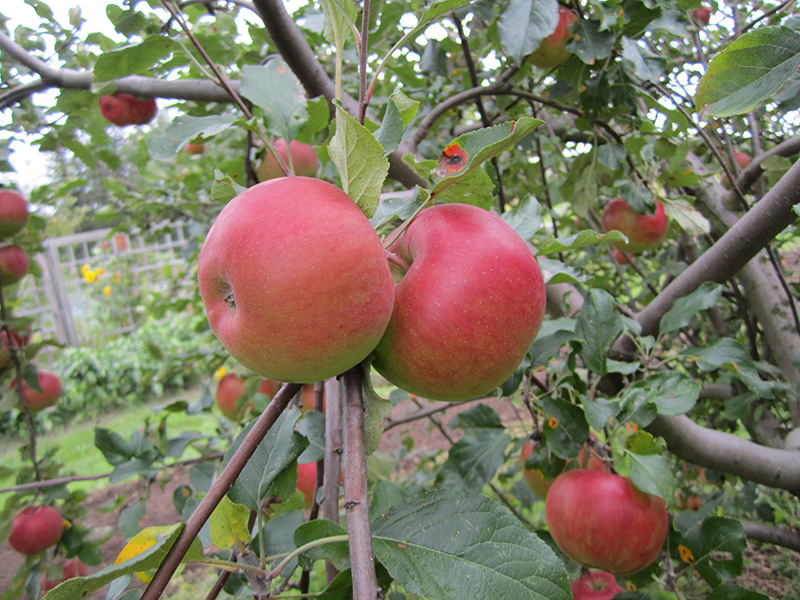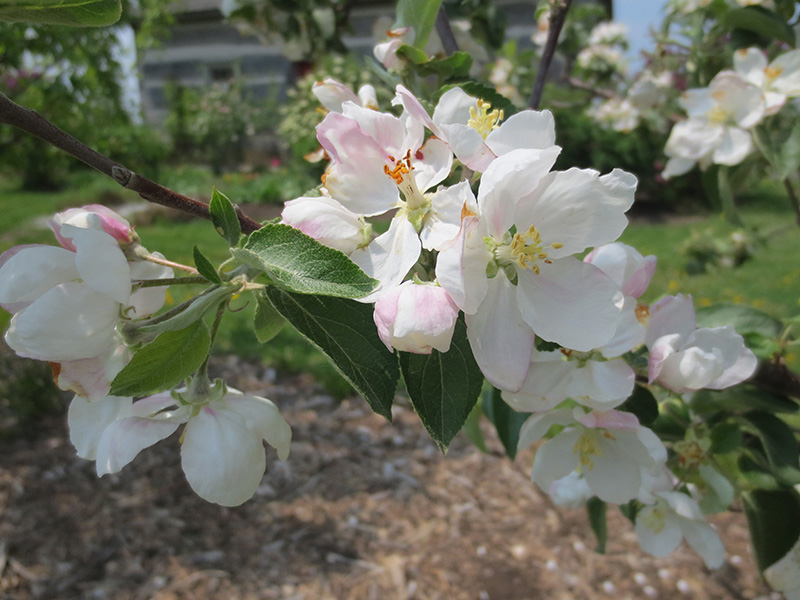Fruit Primer
By Mark and Ben Cullen
www.markcullen.com sign up for our free monthly newsletter
There has been a ground swell of interest in growing fruit this year. Canadians who are sequestered away, at home, are looking for ways that they can feed them selves and create more sustainable lifestyle.

Here is our Fruit Tree Primer: 101. Armed with this information, you can (hopefully) wade into your local garden retailer and look over the selection of choice trees with confidence that you know something about the subject.
The #1 choice in Canada for tree fruit is the apple. The McIntosh apple was developed in Ontario over a century ago. In our opinion, good as it is, there are many better performing apples out there.
The most asked question is, “Do I need two apples to produce fruit?” The short answer is yes. A lonely apple tree, without a mate, might produce SOME fruit but if there is an apple tree nearby, in full flower at the same time as said tree, both will produce a lot more apples.

The second most asked question relates to insects and disease: “Should I spray my tree?” The short answer on this one is also, yes. Mark has 40 apple trees in his 10-acre garden, and he sprays them all with dormant spray in April, before the blossoms break open and again after blossom drop (around the beginning of June). He applies a combination of End All insecticide and garden sulphur or the lime sulphur that comes in the dormant spray kit. These products are safe to use and environmentally responsible.
Pears, cherries, and plums also fall into the ‘cross pollination’ category and need mates in order to maximize their fruiting. However, sour cherries, like Montmorency, are self-fruitful and a Canadian introduction called Stella, which is classified as a sweet cherry, does not need a mate.
Speaking of other fruits, pears are the easiest fruit to grow. They generally do not like to be pruned, they are the least susceptible to insect and disease problems and every second year they are overloaded with pears, for the most part.
Self-fruitful fruit trees include peaches, apricots and nectarines. You only need to plant one to get lots of fruit. They like to be pruned back hard after winter. Assess the winter damage on your trees each spring and prune out any dead wood, then open the tree up to the sun and wind by pruning out the heaviest wood right down into the heart of the tree. This makes for odd looking trees but great fruit.
We recommend that you buy Canadian grown fruit trees. This provides some assurance that the tree is hardy to your area and suitable for growing in your weather and soil conditions.
Plant all fruit trees in open, nutrient rich soil. Peaches really enjoy a soil mix that is 50% sand. Never plant a fruit tree in a depression where water accumulates as none of them enjoy wet feet. Plant high, dig a wide hole about a meter in diameter and use 3 or 4 bags of quality planting soil mix. Stake your trees for the first 3 or 4 years and in the fall put a spiral plastic rodent protector on the trunk to prevent rabbit damage.
For a good read, we recommend the book Growing Urban Orchards by Susan Poizner. Susan explores the ups, downs and how-to’s of fruit tree care in the city. Details at www.orchardpeople.com.



